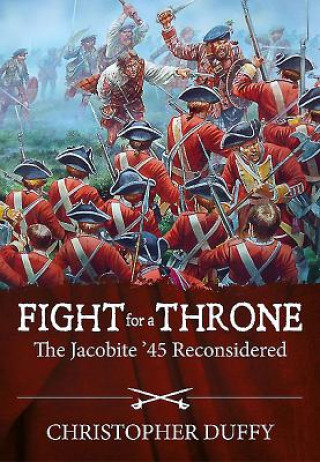
Kód: 09257861
Fight for a Throne
Autor Christopher Duffy
The bid of Bonnie Prince Charlie and his Jacobites for the throne of Britain has never lost its grip on the popular imagination. In July 1745 he and a tiny group of companions arrived in Scotland. They came unannounced and unsuppo ... celý popis
- Jazyk:
 Angličtina
Angličtina - Vazba: Pevná
- Počet stran: 680
Nakladatelství: Helion & Company, 2015
- Více informací o knize

2737 Kč
Dostupnost:
50 % šance Máme informaci, že by titul mohl být dostupný. Na základě vaší objednávky se ho pokusíme do 6 týdnů zajistit.
Máme informaci, že by titul mohl být dostupný. Na základě vaší objednávky se ho pokusíme do 6 týdnů zajistit.Prohledáme celý svět
Mohlo by se vám také líbit
-

Russia's Military Way to the West
4607 Kč -

By Force of Arms
1343 Kč -

Stuarts in Italy, 1719-1766
1712 Kč -

Jacobites
718 Kč -

Ottoman Army of the Napoleonic Wars, 1798-1815
944 Kč -

Battle of Aughrim 1691
606 Kč -
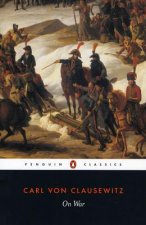
On War
356 Kč -

1690 Battle of the Boyne
839 Kč -
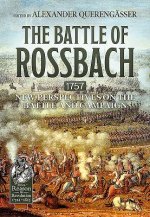
Battle of Rossbach 1757
1225 Kč -

Fiscal-Military State in Eighteenth-Century Europe
5371 Kč -

Jacobites at Urbino
1665 Kč -

Honours of War
441 Kč -

Napoleon's Swiss Troops
441 Kč -

On War
716 Kč -

Battle of Quiberon Bay, 1759: Britain's Other Trafalgar
1126 Kč -
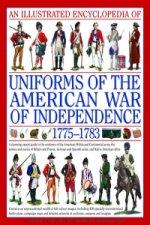
Illustrated Encyclopedia of Uniforms of the American War of Independence
543 Kč -
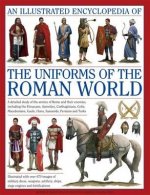
Illustrated Encyclopedia of the Uniforms of the Roman World: A Detailed Study of the Armies of Rome and Their Enemies, Including the Etruscans, Sam
543 Kč -

Washington's Spies
381 Kč -
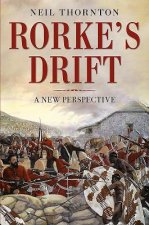
Rorke's Drift
614 Kč -
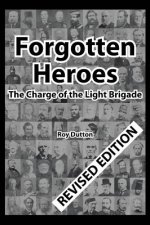
Forgotten Heroes
1424 Kč -

Polish Armies of the Partitions 1770-94
441 Kč -

War and Independence In Spanish America
2188 Kč -

Felix, June 5th 1994
587 Kč -

Battle of the Boyne 1690
716 Kč -
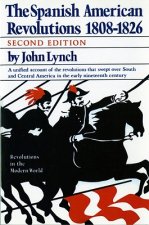
Spanish-American Revolutions, 1808-26
1072 Kč -
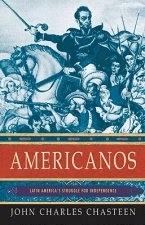
Americanos
2596 Kč -

General History of the Pyrates
615 Kč -
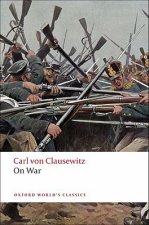
On War
276 Kč -

San Martin
1790 Kč -
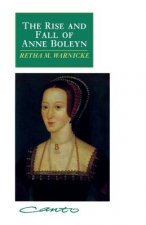
Rise and Fall of Anne Boleyn
656 Kč -

On War
143 Kč -
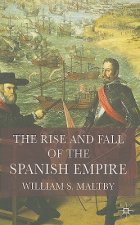
Rise and Fall of the Spanish Empire
1369 Kč -

Illustrated Encyclopedia of Uniforms of World War I
543 Kč -

Illustrated Encyclopedia of Military Uniforms of the 19th Century
543 Kč -

Mein Kampf
519 Kč
Dárkový poukaz: Radost zaručena
- Darujte poukaz v libovolné hodnotě a my se postaráme o zbytek.
- Poukaz se vztahuje na celou naši nabídku.
- Elektronický poukaz vytisknete z e-mailu a můžete ihned darovat.
- Platnost poukazu je 12 měsíců od data vystavení.
Informovat o naskladnění knihy
Zadejte do formuláře e-mailovou adresu a jakmile knihu naskladníme, zašleme vám o tom zprávu. Pohlídáme vše za vás.
Více informací o knize Fight for a Throne
Nákupem získáte 274 bodů
 Anotace knihy
Anotace knihy
The bid of Bonnie Prince Charlie and his Jacobites for the throne of Britain has never lost its grip on the popular imagination. In July 1745 he and a tiny group of companions arrived in Scotland. They came unannounced and unsupported, and yet within less than five months Charles was able to lead an army to within marching distance of London and make King George II fear for this throne. Afterwards the Highland Army continued to out-fight the redcoats in every encounter, except its very last. These were not the achievements of a backward-looking cause, and this ground-breaking study is the first to explain exactly why. Almost to the very end the Jacobites had the literal and metaphorical 'edge' over their enemies, thanks to the terror-inspiring highland charge, and also, as this book as this book is the first to reveal, to the highly-advanced organisation of their forces in 'divisions' - miniature armies that allowed them to out-manoeuvre their enemies on the strategic plane. At the same time Prince Charles made a credible bid for the political and ideological high ground, an appeal based on religious toleration, and a monarchy working in cooperation with an empowered and accountable Parliament. The Prince therefore not only drew on traditional loyalties, but attracted the support of heavyweights of the new 'Enlightenment'. It all made a telling contrast to the demeaning nature of the Hanoverian government in Britain, which was mired deep in corruption. The Hanoverian politicians in London and Scotland, who had honed their skills in petty advantage, were now all of a sudden called upon to act as strategists, and they failed completely. The prime minister lost the Carlisle to the Jacobites simply because he refused to pay the cost of a courier. These revelations, which show the Jacobite enterprise of 1745 as a potent and modernising force, turn the accepted interpretation of this episode on its head. As an impartial historian Christopher Duffy deals comprehensively with the reasons for ultimate triumph of the Hanoverian cause in 1746. Due credit is given to the Duke of Cumberland. He was an inspirational leader. He had the measure of the strength and weaknesses of the British Army, and he evolved the cautious and systematic kind of war that helped to bring him victory at Culloden on 16 April 1746. Conversely the Jacobites had been dogged even from the start of the Rising by their failure to reconcile two perspectives - that of Prince Charles, who was striving to reclaim the crown for the Stuarts in London, and the narrower visions of the more overtly Scottish party. It led to the contentious turn-around of the Jacobites at Derby, and finally and fatally to the dispersal and exhaustion of the Highland Army before Culloden. These assertions rest on the recent advances by other historians in 'Jacobite studies', and the author's continuing researches in to unexploited primary sources. His documentary finds extend to the autobiography of Lieutenant-General Hawley, Lord George Murray's explanations of key episodes of the Rising (and his detailed accompanying map of Culloden), the material collected by the restored Whig administration in Edinburgh towards an 'official' history of the Rising, the Reverend John Home's detailed questioning of survivors, and much more. Lastly Duffy returns to his starting point, the enduring appeal of the '45 to our instincts. He concludes that it comes from the elusive nature of the episode, recognised by tough-minded men of the time as something 'epick' and 'miraculous' - literally beyond rational explanation, and capable ever since of being re-fashioned according to our imaginings.
 Parametry knihy
Parametry knihy
Zařazení knihy Knihy v angličtině Humanities History Military history
2737 Kč
- Plný název: Fight for a Throne
- Podnázev: The Jacobite '45 Reconsidered
- Autor: Christopher Duffy
- Jazyk:
 Angličtina
Angličtina - Vazba: Pevná
- Počet stran: 680
- EAN: 9781910777053
- ISBN: 1910777056
- ID: 09257861
- Nakladatelství: Helion & Company
- Hmotnost: 1304 g
- Rozměry: 185 × 255 × 319 mm
- Datum vydání: 13. October 2015
Oblíbené z jiného soudku
-

With the Old Breed
224 Kč -

SS Dirlewanger Brigade
358 Kč -

Mediterranean Air War, 1940-1945
1520 Kč -

Wars of the Roses
401 Kč -

SAS in Occupied France
677 Kč -
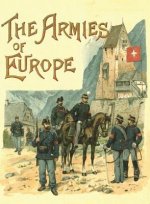
Armies of Europe Illustrated
716 Kč -

Soviet Cruise Missile Submarines of the Cold War
499 Kč -

Black Prince And The Sea Devils
1040 Kč -

Truth About The Wunderwaffe
1126 Kč -

Kill Anything That Moves
459 Kč -

Helmet for my Pillow
356 Kč -

Forgotten Highlander
356 Kč -

TM 9-803 Willys-Overland MB and Ford Model GPW Jeep Technical Manual
458 Kč -

With the Old Breed
410 Kč -

Sleepwalkers
542 Kč -

Panzerkampfwagen Tiger Ausf.B
623 Kč -

D-Day
277 Kč -

War that Ended Peace
290 Kč -

Second World War
794 Kč -

Band Of Brothers
268 Kč -

American Sniper
302 Kč -

Battles Map by Map
848 Kč -

Brothers in Battle, Best of Friends
384 Kč -

Eastern Approaches
356 Kč -

Citizen Soldiers
356 Kč -

Fate is the Hunter
302 Kč -

Shattered Sword
740 Kč -

Panzerjager on the Battlefield
703 Kč -

Fairbairn-Sykes Commando Dagger
436 Kč -

Templars
329 Kč -

Bravo Two Zero
323 Kč -

Us Forces in Vietnam 1968 - 1975
592 Kč -

Military History Book
810 Kč -

Lost Victories
596 Kč -

The Second World War
487 Kč -

Hirohito and the Making of Modern Japan
410 Kč -

T-34 on the Battlefield. Volume 2
874 Kč -

Reaper
420 Kč -

RAF Battle of Britain Fighter Pilots' Kitbag
463 Kč -
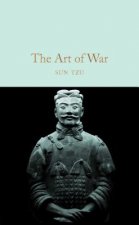
Art of War
323 Kč -

Pacific Crucible
518 Kč -

Soldaten - On Fighting, Killing and Dying
276 Kč -

1914-1918
584 Kč -
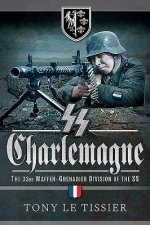
SS Charlemagne
356 Kč -

Between Giants
468 Kč -

German Panzers 1914-18
441 Kč -

War Like No Other
395 Kč -

Hommes et ouvrages de la ligne Maginot, Tome 4
1289 Kč -

Winter Uniforms of the German Army
2206 Kč
Osobní odběr Praha, Brno a 12903 dalších
Copyright ©2008-24 nejlevnejsi-knihy.cz Všechna práva vyhrazenaSoukromíCookies


 Vrácení do měsíce
Vrácení do měsíce 571 999 099 (8-15.30h)
571 999 099 (8-15.30h)